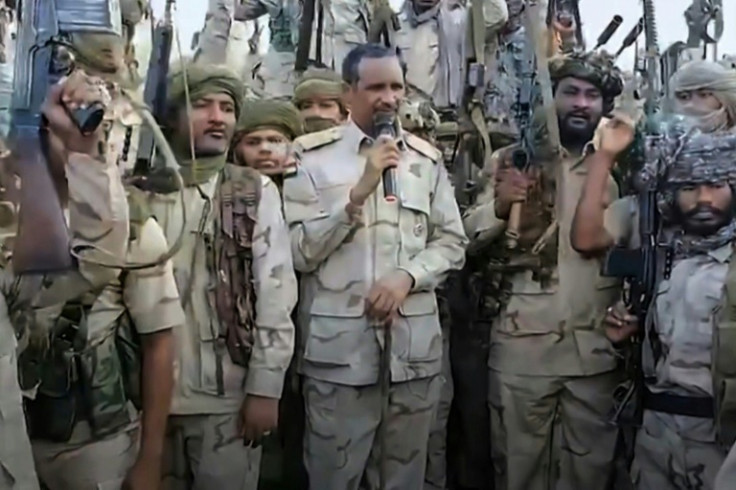Surprise Rebel Alliance Could Give Sudan's Beleaguered RSF A Boost

Sudan's paramilitary Rapid Support Forces have signed a charter paving the way for a parallel government with its allies, including a former foe who analysts say could offer crucial territory, fighters and border access.
Since April 2023, a brutal war between the RSF and the regular army -- represented by the internationally recognised government currently based in Port Sudan -- has killed tens of thousands, uprooted 12 million and visited mass human rights violations upon civilians.
Last month, the former US administration declared that the RSF had committed genocide in the western region of Darfur.
Until last week, the lesser-known third party to the war was Abdelaziz al-Hilu, whose faction of the Sudan People's Liberation Movement-North had previously fought both the army and the RSF in the country's south.
In an unexpected turn of events, Hilu appeared in Nairobi last week, and his group was one of the key signatories to an RSF charter for a "government of peace and unity".
If his battle-hardened fighters join forces with the RSF, analysts say it could significantly bolster the weakened paramilitaries, led by Mohamed Hamdan Daglo (widely known as Hemeti).
After weeks of losses as the army charges through the country, the new rebel alliance could also grant key border access to RSF-friendly east African states.
The RSF has conquered nearly all of Darfur, but is unable to cement its hold on the region and appears on the verge of losing all of the capital Khartoum to the army.
"Hemeti is on his back foot," Marc Lavergne, a professor at France's University of Tours, told AFP.
"Hilu's professional fighters could give him some very welcome help," said Lavergne, a veteran Sudan expert who has personally known Hilu since he helped broker agreements in the region in the early 2000s.
According to Sudanese journalist and SPLM-N specialist Mostafa Serry, the two groups together command up to "65 percent of Sudan".
Their common interests would be best served by merging "the large military forces and vast areas they control", he told AFP.
Hilu controls much of South Kordofan state from his foothold in the Nuba Mountains, as well as pockets of Blue Nile state bordering Ethiopia.
Together, the two groups have border access to Libya, Chad, the Central African Republic and -- thanks to Hilu -- now South Sudan and Ethiopia.
"All of the countries surrounding Sudan, except Egypt, are in favour of the RSF," Lavergne said, and could serve to bolster the paramilitary group, whose supply lines from Sudan's western border have been compromised in recent months.
Analysts say Hilu, historically no friend of Hemeti's, must have received something in return.
"Presumably Hilu did this, in part, to save areas under his control (from) future violence, to increase aid access to those areas, and to guarantee a future role for himself," Cameron Hudson, senior fellow at the Centre for Strategic and International Studies, told AFP.
Famine was officially declared in parts of the Nuba Mountains in December, months after SPLM-N itself said mass starvation was threatening its people, including the estimated 700,000 who have fled to the mountains since the war began.
Aid access has been negligible, though the group controls parts of the border with its ally South Sudan, and an airport only 125 kilometres (77 miles) away from the border.
Yet news of Hilu in Nairobi "surprised and angered many of his supporters, who have suffered direct attacks and deprivation by the RSF", Hudson told AFP.
An "opportunist", according to Hudson, Hilu is committed only to "power and advancement of his own vision".
Sources in Nairobi told AFP that Hilu's key demand was the charter's pledge for a secular Sudan, after decades of fighting against Arab and Islamic hegemony from Khartoum.
The RSF -- itself notorious for ethnic violence -- has branded itself a champion for Sudan's marginalised communities.
But even if Hilu counts the charter as a win, he is unlikely to be wholly convinced by Hemeti's promises.
"The RSF doesn't have real allies, it has accomplices," Lavergne told AFP, explaining that "Hilu could side with Hemeti, but he will certainly not abide by his every whim".
© Copyright AFP 2024. All rights reserved.




















